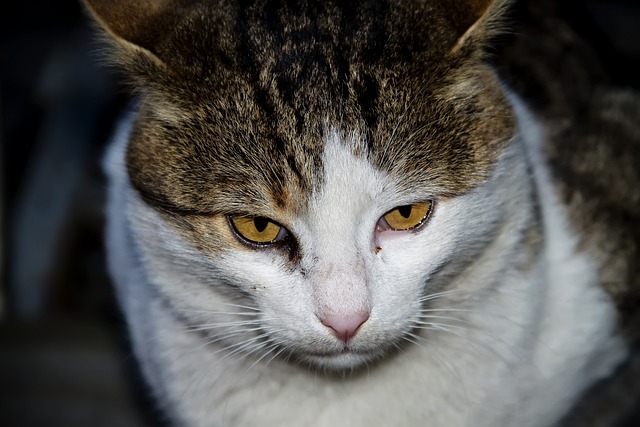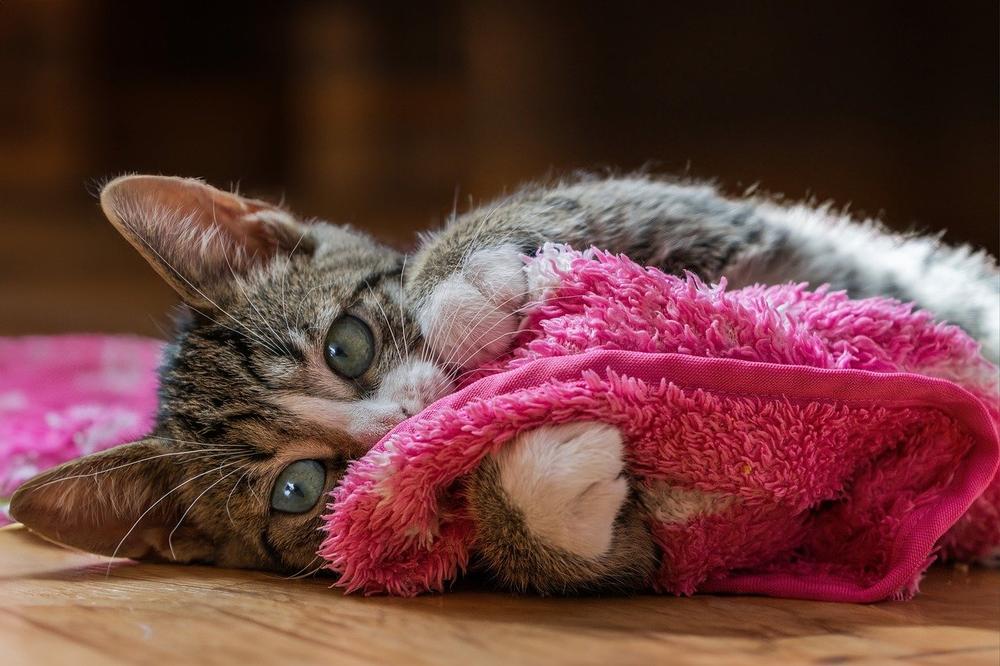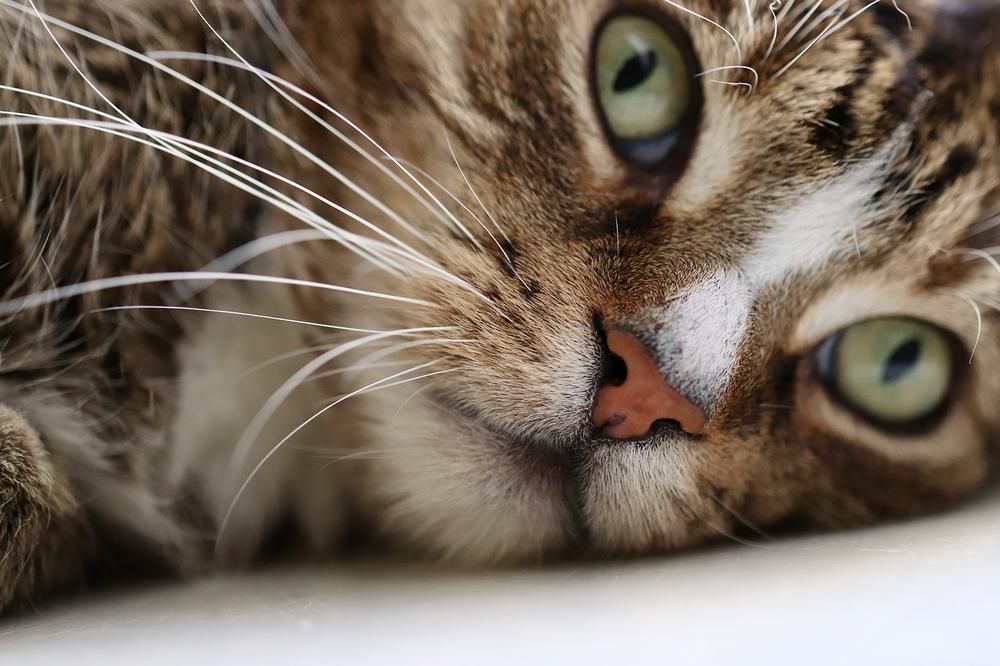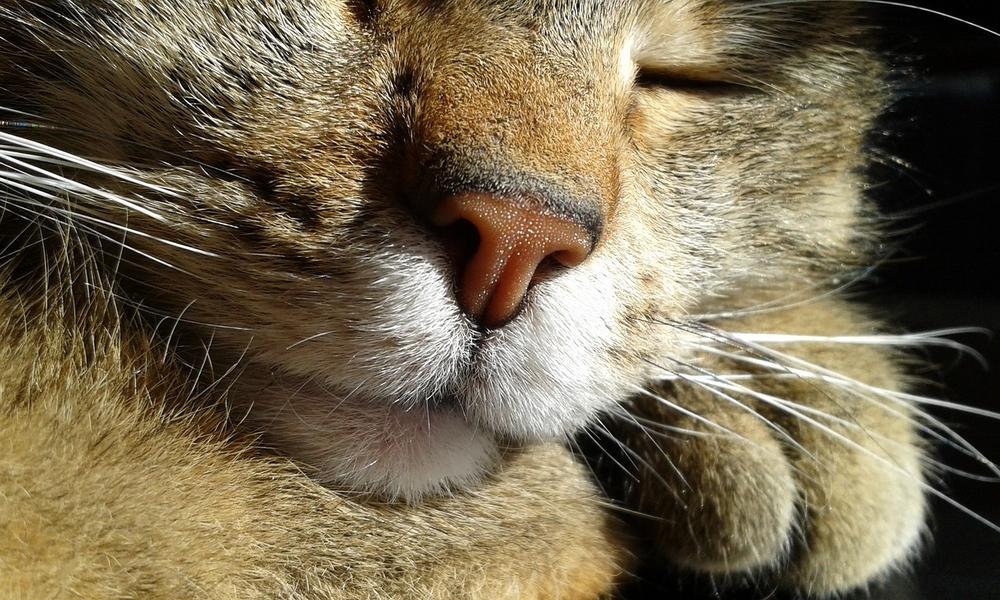Why Does Your Cat Have Such a Dry Nose (What Should You Do)?

Ever wondered why your cat's nose feels dryer than a desert?
Want to know why?
Well, guess what?
You've come to the right place... 😺
Because let's face it, we've all been there.
You're petting your adorable furball, and suddenly you feel their nose and it's all dry and cracked, making you worry if something is wrong.
But don't fret!
I've got your back.
In this blog post, we're going to explore the possible reasons behind your cat's dry nose.
So, let's dive right in and uncover the truth!
How to Treat Your Cat’s Dry Nose
To treat your cat's dry nose effectively, consider these 10 helpful tips:
- Use a catsafe moisturizing balm specifically designed for dry noses.
- Check the ingredients of the balm to ensure it does not contain any harmful substances, such as essential oils.
- Apply the balm gently on your cat's nose, ensuring they do not lick it off.
- Consider using a humidifier in your home to add moisture to the air, helping to hydrate your cat's nose naturally.
- Clean your cat's nose regularly with a damp cloth or gentle cat wipes.
- Avoid exposing your cat to extreme temperatures or dry environments that can further contribute to dryness.
- Consult with a veterinarian if the dry nose persists or worsens, as it may be a symptom of an underlying dermatological issue.
- In some cases, antibiotics or antifungal medications may be prescribed by the veterinarian to address the underlying cause of the dry nose.
- Offer your cat different flavors and textures of food to entice them to eat, as picky eating habits can contribute to dry nose.
- Ensure your cat's diet is balanced and provides all the necessary nutrients for a healthy lifestyle, considering a mix of wet and dry food options.
Taking care of your cat's nose is essential for their overall well-being. 😺

But did you ever consider that your cat's dry nose could be a result of health conditions or even allergies?
Let me explain further.
Common Causes of Dry Noses in Cats
Weather conditions and hydration affect a cat's nose
You know what?
Your cat's nose can get dry because of the weather or when it's too cold.
So, what can you do to help your furry friend be comfortable?
Just ensure you keep them warm and in an environment with enough humidity. Don't let your kitty freeze!
But wait, there's more...
Another reason for dryness in cats' noses is dehydration. Make sure they always have access to clean drinking water.
It's essential for their all in all health and keeps their nose moisturized.
And guess what?
Tears naturally hydrate a cat's nose.
Yes, their tear ducts work like magic!
But if tears are scarce, it can lead to dryness.
So, keep those tears flowing while giving them plenty of snuggles!
Health conditions and allergies can play a role
Your cat's nose isn't just affected by dry air and lack of hydration.
There are other factors to consider, such as health conditions and allergies.
Imagine sores, blisters, swelling...
Not pleasant, right?
Scratches, bumps, foreign objects, polyps, and tumors can also cause trouble for that delicate little nose.
Ouch!

Oh, and here's something else!
Have you heard of Canine Distemper?
Though uncommon now, it used to be associated with dry and cracked noses in cats.
And if your cat catches an upper respiratory infection (URI), prepare for some nasal discomfort.
Redness, crusting, nasal discharge, congestion, sneezing, decreased appetite, and lethargy — sounds like a real party, doesn't it?
Injuries, cancer, and environmental factors can dry out your cat's nose
Accidents happen, even to our beloved feline friends.
All those outdoor risks, toxins, rough terrain, harsh weather, bites, burns... all these can make your cat's nose red, swollen, bleed, or have discharge.
Oh, and did I mention cancer?
Different types of it can also affect their noses.
Your cat's nose isn't invincible!
But hey, it's not all bad news...
Sometimes, environmental factors like allergies, sunburn, over-grooming (cats will be cats!), and even specific cat breeds can lead to dryness.
Allergens are sneaky little devils, so figuring out and reducing exposure is the key.
And guess what?
Some cat owners have found certain brands of cat food super helpful in keeping their cat's nose moisturized and healthy.
So why not give those a try?
And guess what? If you're curious about the possible reasons and solutions for your cat's crusty and black nose, I highly recommend checking out my article on Why Is My Cats Nose Crusty and Black.
Discover how to address this issue and find peace of mind.
Stay proactive and take care of your furry friend's well-being.
Tips for Preventing and Managing Dry Noses in Cats
Here's how you can prevent and handle dry noses in cats:
- Keep an eye on how much water your cat drinks.
- Always offer them fresh and clean water.
- Make sure to take them for regular check-ups at the vet.
- Deal with any nasal problems promptly.
- Shield white-furred kitties from sunburn by using cat-friendly sunscreen.
- Apply sunscreen specifically to their ears and nose.
- Be careful with injectable fluids as they may cause an overly moist nose.
- Remember to provide fresh water frequently to avoid dehydration.
- If the air is dry, use a humidifier to add some moisture.
- Prevent dry noses by keeping the air moisturized.
Also, consider these factors:
- Understand how your cat eats and what they prefer.
- Ensure they are getting the right nutrition.
- When changing their food, do it gradually to avoid digestion issues and facilitate adjustment.
- Follow the feeding recommendations given by the cat food manufacturer.
By following these simple tips, you can help keep your furry feline friend's nose moist and healthy.
Now, you might be wondering what other signs to look out for if a dry nose alone may not indicate ill-health.
Stick around to discover important clues that can help you identify any underlying health issues in your furry friend and ensure their in essence well-being...
Signs of Ill-Health in Cats: Nose Symptoms and Concerns
Keep an eye on your cat's nose, it's important. 👀
Look for any changes in color or texture, that could mean something is up.
There might be underlying health issues that need a vet's attention.
Don't worry too much if the nose is dry and warm, it doesn't always mean trouble.
But if it feels very warm and dry, it could be a sign of fever or infection.
So watch out for odd signs like flakiness, crustiness, swelling, redness, discharge, bleeding, or unusual growths.

To check dehydration, assess the skin turgor and saliva thickness.
But remember, a dry nose alone isn't enough to tell you what's going on.
Changes in nose color usually aren't a big deal, but if it seems extra wet, that could be a sign of an upper respiratory infection.
And that can make breathing difficult and cause runny nose and eyes.
If your cat seems tired, loses their appetite, purrs or meows less, or goes outside the litter box, talk to a vet.
Remember to consider their in essence health and behavior, not just their nose.
But understanding that a cat's warm or dry nose is not always a cause for concern, let me assure you that as long as your cat is otherwise healthy and showing no other worrying symptoms, there is likely nothing to worry about...
Should a Cat’s Nose Always Be Wet?
Cats, you know how mysterious they can be.
You're always trying to figure out why they do the things they do.
One thing that's been on your mind is their noses.
Should they always be wet?
Well, here's what I've learned about cat noses:
- If your cat has a dry nose but is otherwise healthy, you don't need to worry. It's normal.
- Cats lick their noses to improve their sense of smell, so it's no surprise if their noses get wet sometimes.
- Unlike dogs, a warm or dry nose doesn't mean a cat is sick. Cats have their own rules when it comes to noses.
- Keep an eye out for green mucus coming from your cat's nose. If this happens and they have other concerning symptoms, it's time to see a vet.
- Some cats just naturally have warm, dry noses, and that's okay. Each cat has its own unique quirks.
- Those cute little freckles on orange cats' noses? They tend to appear more as they age. It adds some character to your furry buddy!
Now you've got a better understanding of cat noses.
Don't stress too much if you notice changes—trust your instincts and watch out for any signs that might be worrisome.
It's all part of being a cat parent!
Dry Noses: Ensuring Your Cat's Well-being
Key Takeaways:
- Dermatological issues like a dry nose may require antibiotics or antifungal medications.
- Ensure hydration by providing clean drinking water to prevent dehydration.
- Lack of tears can lead to dryness, so monitor tear production.
- Various health conditions can cause a dry nose, including URIs, allergic dermatitis, and cancer.
- Regular veterinary check-ups are important for detecting and addressing nasal problems.
- Cats with white fur can get sunburnt, so apply cat-friendly sunscreen.
- Use a humidifier in dry environments to add moisture to the air.
- Understand your cat's eating habits to ensure they receive proper nutrition.
- Monitor the nose for abnormal signs such as flakiness, swelling, or discharge.
- Contact a vet if your cat shows signs of illness like lethargy or reduced appetite.
And that wraps up today's article.
You made it to the end of my blog post! I'd love to know your thoughts. I have poured my heart into creating informative and comprehensive blog posts, investing a considerable amount of time in the process. If you could take a moment to click on any of the social sharing icons and share this post with others, I would truly be grateful. Thank you so much for your support!
Talk soon,
-Sarah Davis